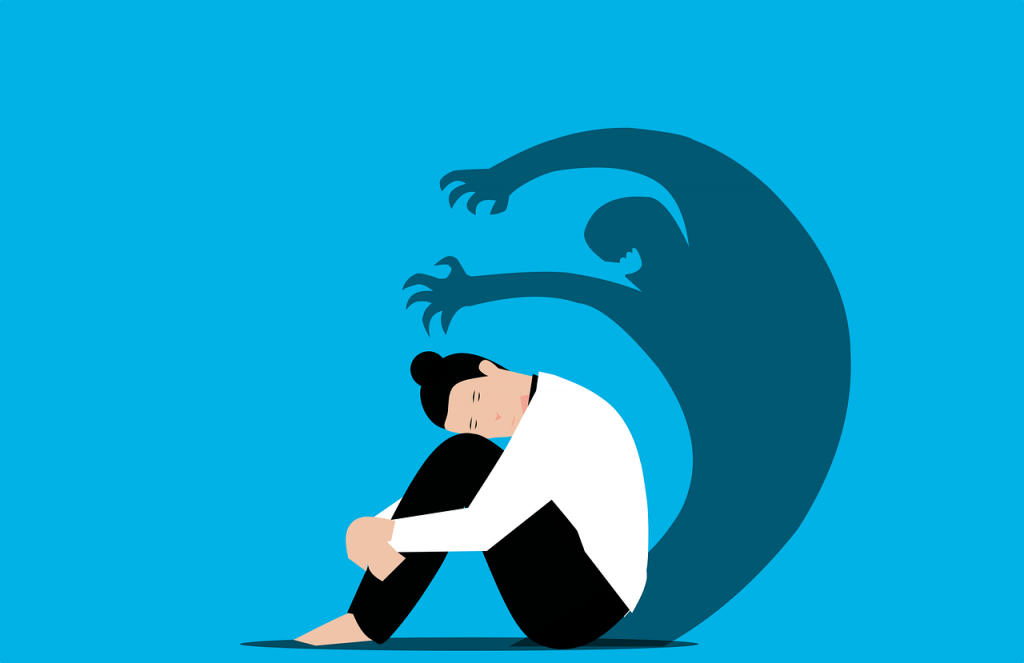Hypersexuality as Self-Harm
Kat Blaque, a popular YouTuber based in California, has often centered her videos around her first-hand experience with something called “hypersexuality.” But what is exactly hypersexuality and how does its prevalence become even more important to study in today’s times?
Hypersexuality is another name for compulsive sexual behavior, which involves overindulgence and/or over-interest in anything and everything related to sex. It could manifest itself as fantasies, uncontrollable urges, and the tendency to act on these urges. This action can take the form of self-pleasure, cybersex, multiple-simultaneous sexual partners, use of pornography, etc. The difference between “normal” sexuality versus hypersexuality is the degree of distress or dysfunctionality that comes with these sexual urges. Hypersexuality hurts your health, relationships, work, and other aspects of your life as sexual urges in such cases are uncontrollable and become a central focus of an individual’s life.

Hypersexuality and Sexual Violence
Something that a lot of people may not be familiar with is the relationship between hypersexuality and sexual violence. A taboo reaction to sexual violence and trauma is hypersexuality, which might be hard to believe at first. A common-sense notion of the “expected” response to sexual violence will be repulsion to sex or toned-down sexuality. However, in reality, many survivors of sexual violence, including aforementioned YouTuber Kat Blaque, tend to engage more in sexual activities to empower themselves by sex, something that disempowered them in the past. It feels liberating to them, and this feeling of liberation acts as a catalyst for hypersexual expressions. However, in reality, these situations are never really about the victim’s sexual happiness or gratification. Here, hypersexuality takes an extremely self-destructive form and, the worst part is that it leaves the victims to suffer in isolation because of how stigmatized “sexuality” and “sex” are.
This also reminds me of what Donald Trump once said while referring to Lindsay Lohan. He asserted that “troubled women are the best in bed,” which throws light on the sick mentality of some men who go around looking for women with a history of sexual abuse because they assume such women are “easy” or “sexually experienced.”

Hypersexuality and Self-worth.
People with hypersexual urges tend to put themselves in dangerous situations, only for fleeting moments of physical intimacy. For example, Missa D said, “I will trade access to my body for someone to just hold me for a few minutes. If/when he hurts me, it’s because I believe I deserve it.” This can also be observed when people conflate their worth with the amount of sexual validation or attention they get from others, along with the degree of interest others show in them sexually. Thus, when their sexual partners leave, feelings of worthlessness might resurface, and this only pushes them further down the rabbit hole of obsession with sex. It becomes a cycle of finding new people to have sex with, thus feeling worthy, and so on. Subtle forms of this pattern can also be observed in the “hookup culture” or excessive “casual sex” people partake in these days in the name of sexual autonomy, modernity, and liberation. A woman that was interviewed by me for writing this blog, opened up about her experience with casual sex. She said, “for a while, I thought I was having a lot of casual sex because I had a high sex drive which I considered normal. So, when I finally found a partner who didn’t just want me for convenient sex, I didn’t know how to react. I felt immediately unattractive, almost undesirable to him… like there was something wrong with me that made him turn down something that was a staple for every person I’d ever dated. Thankfully, he helped me understand that this wasn’t the case at all. Feeling desired for who I am and the intimacy of just being together is powerful, and it eventually started to make sense.”

Hypersexual expressions often fall on the extreme ends of the sexuality spectrum, which are self-harmful, but they can also take more subtle forms, like over-indulgence in casual sex, which people might not even consider harmful or a cause of concern. “Self-harm isn’t always about causing physical pain. It’s continually tugging at that thread that will cause you to unravel. This self-destructive behavior can crop up in areas of our lives we may not be aware of” (Catherine Renton). A woman who was interviewed about her relationship with casual sex said, “Convincing myself that my hypersexuality is just me being in control of my own body and embracing who I am when sometimes it’s a negative coping skill and it leaves me empty and lonely and feeling unfulfilled.”
Hypersexuality thus takes self-destructive forms, which are more often than not linked to past sexual trauma, a lack of personal control over sexuality, and confusing hypersexuality as liberation or sexual autonomy. A better understanding of the nature of compulsive sexual behaviour shows that sex education and psychotherapy can provide a beacon of hope for people suffering from hypersexuality.
Cover Image Credits: Pixabay
Author

